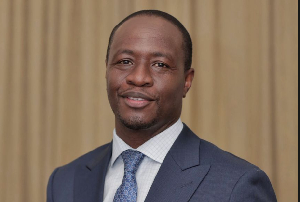17 incumbent members of the National Democratic Congress (NDC) have suffered defeat in the parliamentary and presidential primaries held on May 13, and as a result, they will not be returning to Parliament in 2024.
This outcome has raised concerns within the NDC, as these MPs still have one and a half years left to serve in their current terms.
The loss of these incumbents is particularly worrisome for the NDC due to the prevailing trust issues within the party.
Recently, there has been a lack of consensus among NDC members, highlighted by the endorsement of new ministerial appointments by President Akufo-Addo, despite the party's directive to reject them.
This decision by some NDC members to defy the party's stance has created internal friction and further eroded trust among party loyalists.
An example of this divergence can be seen in the approval of ministerial appointees even in the absence of three NPP MPs from the majority side, including Adwoa Safo. It is noteworthy that despite the majority having 135 members present for the voting process, Bryan Acheampong, the Minister for Food and Agriculture designate, received 167 "yes" votes, while KT Hammond, Minister for Trade and Industry, received 154 "yes" votes. Stephen Asamoah Boateng, the Minister of Chieftaincy and Religious Affairs, garnered 147 "yes" votes, and Osei Bonsu Amoah and Stephen Amoah, both involved in trade and industry, received 149 and 146 "yes" votes respectively.
In light of these events, it is plausible that the MPs who lost their seats could be susceptible to external influences, as they have already experienced a significant setback in their political careers.
Additionally, these defeated incumbents might harbour feelings of resentment towards their party and seek to undermine decisions made by the NDC's minority in Parliament. Political retribution is not uncommon, and the desire to settle scores may prevail over party loyalty.
While it is essential to prioritize the party's interests, it is important to acknowledge that politics can be unforgiving, as famously stated by a Member of Parliament for the Asawase Constituency.
Thus, the NDC must tread carefully and find effective ways to engage these incumbents who lost their seats. Collaborating with them, despite their defeat, could help ensure a united front and prevent further divisions within the party. The NDC needs the support of these MPs not only to safeguard their own interests but also to secure the trust and votes of Ghanaians in the upcoming 2024 general elections.
Moving forward, it is crucial for the NDC leadership to engage in open dialogue, foster trust among party members, and address the concerns and grievances of those who have suffered defeat.
By demonstrating a commitment to inclusivity and acknowledging the value of experienced voices, the party can mitigate internal rifts and present a united front to the Ghanaian electorate.
While it may be a challenging task, the NDC must prioritize reconciliation and collaboration to navigate the political landscape successfully. Only through unity and effective cooperation can the NDC position itself as a formidable force in the upcoming elections and beyond.
Opinions of Wednesday, 17 May 2023
Columnist: Nimatu Yakubu Atouyese















